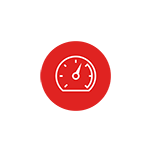For most of us, our understanding of the learning process is shaped by experiences of the school classroom or the lecture theatre. This experience has a tendency to encourage people commissioning transformation programmes to focus almost exclusively on workshop delivery. It is important to appreciate that simply being exposed to information cannot be equated with successfully changing habits and behaviours alone.
Far too often we hear performers, when exposed to new thinking, expressing how much they have "learned". However this is a misconception. Stating the reality more accurately would involve saying how much "potential learning" they have experienced. In fact learning can only be said to have taken place when behaviour has changed; and this takes time, effort and support. For this reason, the learning process can be broken into four phases.

The first stage, initiation, is what usually occurs in a workshop setting. This typically involves exposing performers to new concepts and ideas. This is an important stage but on its own has a limited effect in transforming behaviour.
To be meaningful, group coaching in workshops must involve awareness-raising of beliefs that drive critical behaviours for using the tools and techniques being introduced and develop the motivation and commitment to build the required skills.

Workshops can also facilitate the performer in the second stage of orientating potential learning within their own model of performance.
This involves contextualising the new insights into the performer's "world". This is typically achieved through discussion and relevant practical exercises that offer an opportunity for high quality practice.

Stage three, integration, demands regular practice of new learning in context – “on the job” – in order to create and reinforce new habits. Typically this will be facilitated with the support of a Performance Coach.
The focus here is incorporating the new skills and behaviours, tools and processes in to the performer's "world" and supporting accuracy in applying novel approaches. This will involve hard work that tests almost everyone's motivation and commitment. To integrate new skills and behaviours without any support is the exception rather than the rule!

Once new tools and techniques have been integrated into habit, the Performer enters the final acceleration phase where they build skills to the level of expertise; again with the support of a coach.
This involves improving performance by working on strengths to incrementally build skill driving towards mastery. It can also involve adding layers of sophistication to the armoury of the Performer.
The significance of these stages rests in the proportion of investment afforded to workshop-based “instruction” versus Performance Coaching support. The bias needs to be heavily weighted towards the latter. This is rarely the case and the “learning experience” for many Performers is one of being dipped in a succession of “flavour of the month" initiatives, with a correspondingly negligible ROI for all concerned.